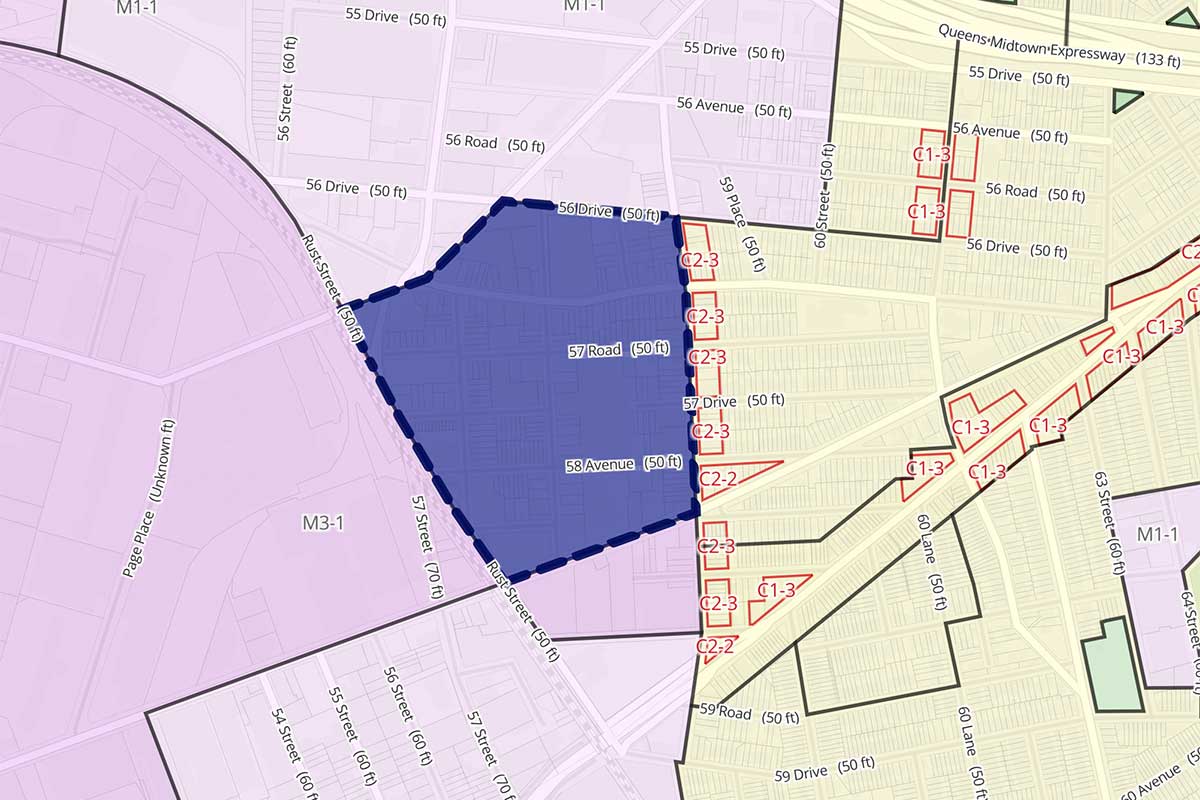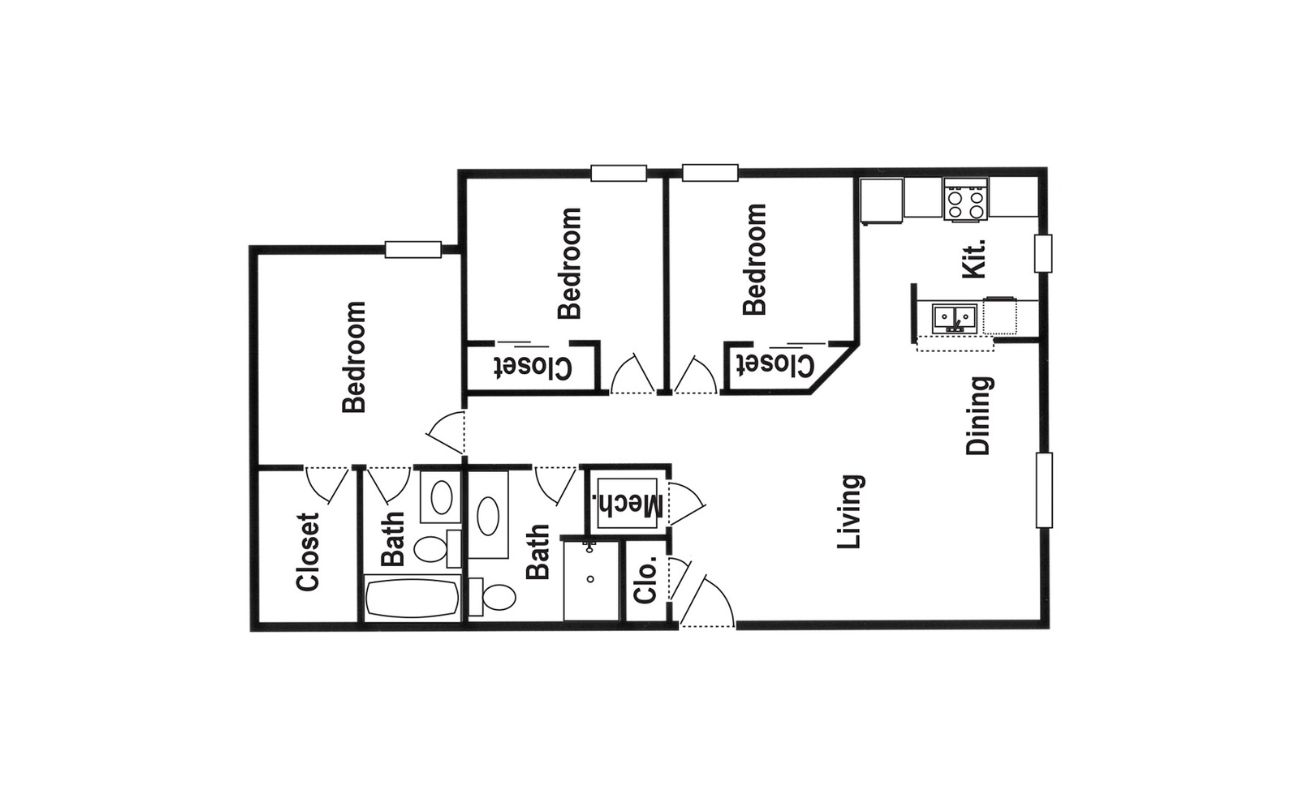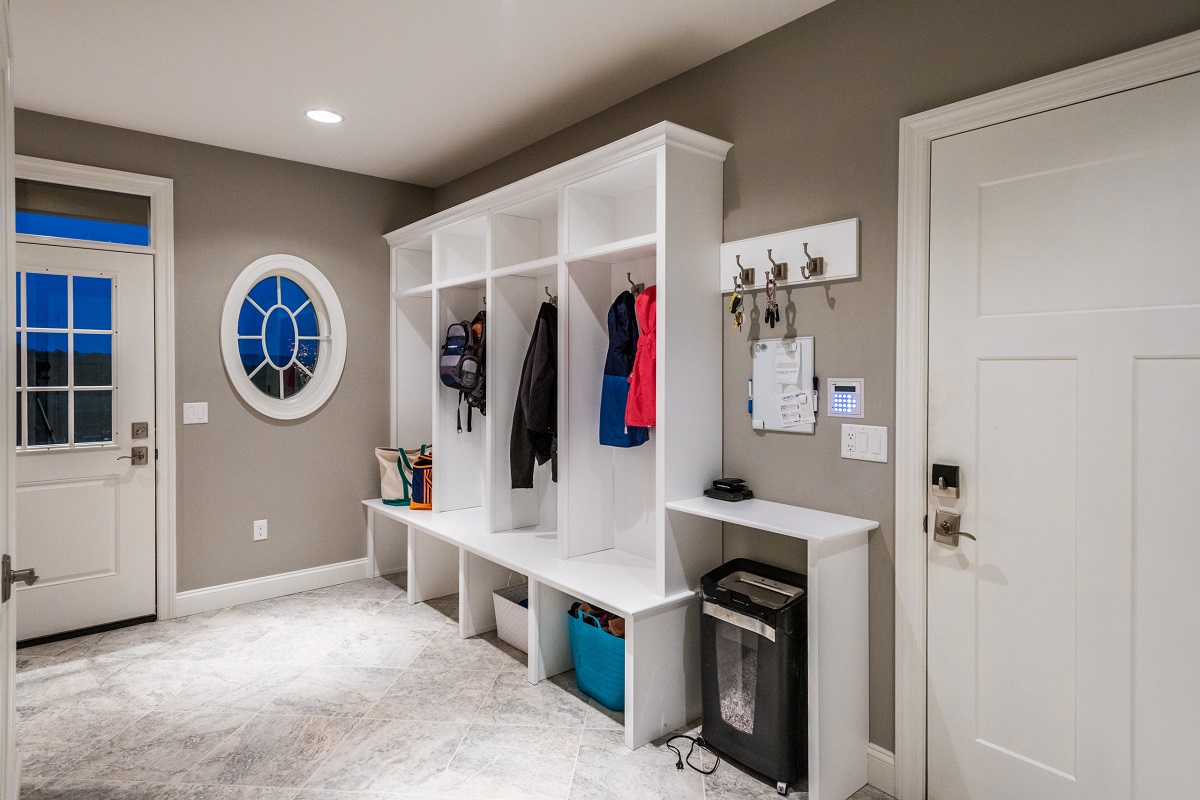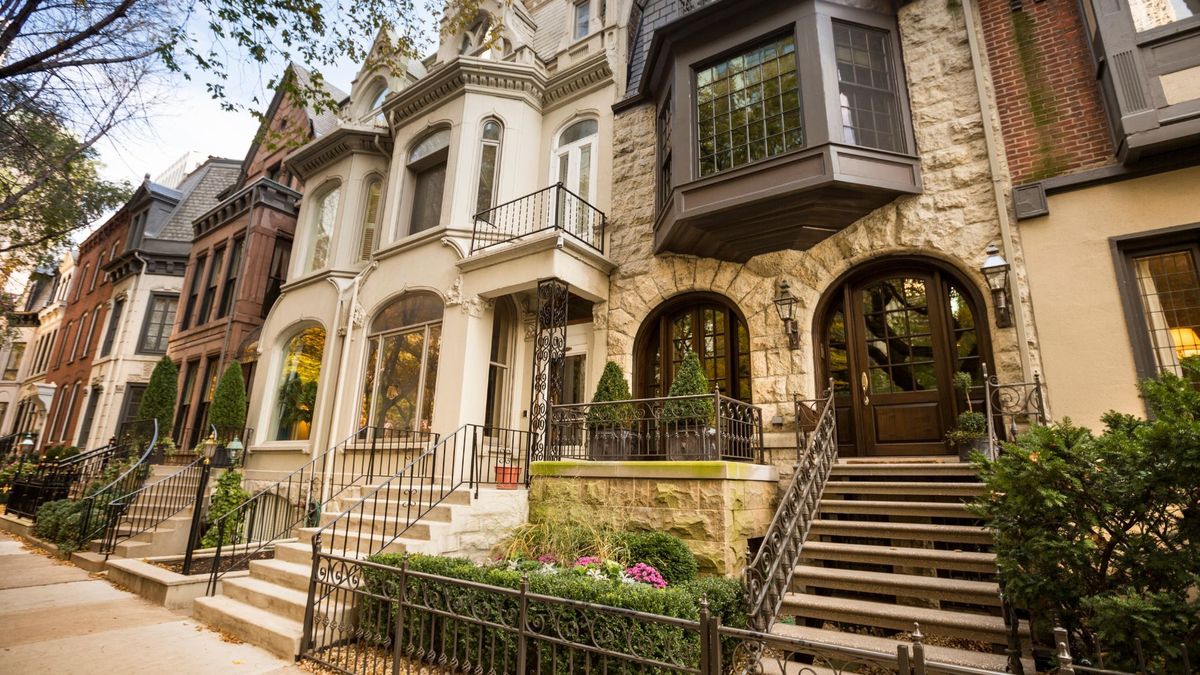Home>diy>Planning & Engineering>How To Find My Zoning District


Planning & Engineering
How To Find My Zoning District
Modified: October 20, 2024
Discover your zoning district with the help of planning-engineering experts. Learn how to find your zoning district and navigate through land use regulations effectively.
(Many of the links in this article redirect to a specific reviewed product. Your purchase of these products through affiliate links helps to generate commission for Storables.com, at no extra cost. Learn more)
What is a Zoning District?
A zoning district is an area of land that is designated for specific land use and development purposes. Local governments, such as city or county authorities, divide the land within their jurisdiction into various zoning districts to regulate how properties can be used and developed. Each zoning district has its own set of rules and regulations that dictate the types of buildings and activities that are permitted in that area.
The purpose of zoning districts is to promote orderly growth, protect property values, and ensure compatibility between different land uses. Zoning helps prevent conflicting land uses by separating residential, commercial, industrial, and recreational areas. This helps to maintain the character of different neighborhoods and ensures that development is coordinated with infrastructure and other public services.
Zoning districts typically fall into several broad categories, including residential, commercial, industrial, agricultural, and mixed-use. Each category has different regulations and restrictions that govern the type, size, and height of buildings, as well as setbacks, parking requirements, and permitted uses.
Residential zoning districts are typically intended for single-family homes, multi-family dwellings, or a combination of both. Commercial zoning districts are designated for businesses, offices, shopping centers, and other commercial activities. Industrial zoning districts are reserved for manufacturing plants, warehouses, and other industrial uses. Agricultural zoning districts are meant for farming and agricultural activities. Mixed-use zoning districts allow for a combination of residential, commercial, and sometimes even industrial uses within the same area.
Within each zoning district, there may be subcategories or subdistricts that further specify the permitted uses and development standards. For example, within a residential zoning district, there may be subdistricts for low-density single-family homes or high-density apartment complexes.
Zoning districts are typically depicted on official zoning maps, which show the boundaries of each district and provide detailed information about the regulations for that area. These maps are often available online or at the local municipal office.
Understanding the zoning district in which a property is located is important for both property owners and potential buyers. It helps determine what can be done with the property, such as whether it can be used for residential or commercial purposes, or if there are any restrictions on its development. It also provides valuable information about the surrounding area and what types of uses and activities are likely to be nearby.
Key Takeaways:
- Understanding your zoning district is crucial for property owners and buyers. It determines property use, development rights, and neighborhood compatibility, impacting property value and legal compliance.
- Utilize online resources, contact local municipal offices, and consult real estate professionals to find and understand your zoning district. This knowledge is essential for informed property decisions and long-term planning.
Read more: How To Find Out Zoning Laws
Why is Knowing Your Zoning District Important?
Knowing your zoning district is crucial for property owners and potential buyers alike. It provides valuable information and insight into what you can do with your property and what restrictions or regulations you need to abide by. Here are a few reasons why understanding your zoning district is important:
- Property Use: Zoning regulations determine the allowable uses for a property. For example, if your property is zoned for residential use, you may not be able to operate a business from your home without obtaining a special permit. Understanding the permitted uses in your zoning district can help you avoid legal issues and make informed decisions about how to best utilize your property.
- Development Rights: Zoning regulations often dictate the density, building height, setbacks, and other development standards for a property. Knowing your zoning district can help you determine the maximum number of units or the size of buildings you can construct on your land. This is important for property owners looking to renovate, expand, or build new structures.
- Property Value: Zoning can have a significant impact on property values. Being aware of the zoning regulations in your area can help you understand the potential for future development or changes in land use nearby. This information can influence your property’s market value and your long-term investment strategy.
- Neighborhood Compatibility: Zoning districts are designed to ensure compatibility and harmony between different land uses. By knowing your zoning district, you can understand the types of activities and buildings that are likely to be present in your neighborhood. This knowledge can help you gauge the level of noise, traffic, and commercial activity around your property.
- Legal Compliance: Violating zoning regulations can result in fines, penalties, or even legal action. Knowing your zoning district and understanding the regulations is essential for staying compliant with the law and avoiding any costly consequences.
- Future Planning: Understanding your zoning district can also help you plan for the future. If you have specific goals for your property, such as building an addition or starting a business, knowing the zoning regulations allows you to assess the feasibility of your plans and take any necessary steps, such as obtaining permits or rezoning requests.
Overall, knowing your zoning district provides a foundation for making informed decisions about your property. Whether you are a property owner or considering purchasing a new property, understanding the zoning regulations helps you navigate the legalities, determine development possibilities, and protect your investment.
Finding Your Zoning District Online
With the advancement of technology, finding your zoning district online has become easier than ever. Many local governments now provide online tools and resources to help property owners and residents determine their zoning district. Here are some steps to help you find your zoning district online:
- Visit the Local Government Website: Start by visiting the website of your local city or county government. Look for a section dedicated to zoning or planning. This section should provide information and resources related to zoning districts in your area.
- Search for Zoning Maps: Look for a zoning map or interactive zoning map on the website. These maps will show the boundaries of different zoning districts in your area. You can typically search by address or navigate the map to find your property.
- Use Property Search Tools: Some local government websites offer property search tools that allow you to enter your address and retrieve specific information about your property, including its zoning district. These tools can provide detailed information about the regulations and restrictions that apply to your property.
- Check for Zoning Codes and Regulations: In addition to zoning maps, local government websites often provide access to zoning codes and regulations. These documents outline the specific rules and standards for each zoning district. Reviewing the zoning codes can give you a better understanding of the permitted uses and development requirements in your area.
- Reach Out for Assistance: If you’re unable to find the information you need online, don’t hesitate to contact the planning or zoning department of your local government. They can provide guidance and answer any questions you may have about your zoning district.
It’s important to note that while many local governments have embraced technology and made zoning information readily accessible online, some may still rely on traditional methods, such as physical copies of zoning maps at the municipal office. If you’re unable to find the information you need online, reach out to the local government office directly for assistance.
Knowing your zoning district is essential for understanding the allowable uses and regulations that apply to your property. By utilizing online resources and tools provided by your local government, you can easily determine your zoning district and access the necessary information to make informed decisions about your property.
You can find your zoning district by contacting your local planning or zoning department, checking the municipality’s website, or using online zoning maps. You may also be able to look up your property’s zoning information using your address on the city or county’s website.
Contacting Local Municipal Office
If you are unable to find your zoning district online or prefer to receive information directly from the source, reaching out to your local municipal office is a reliable option. The municipal office, typically located in your city or county government building, is the hub of information and services related to zoning and land use. Here are some steps to help you contact your local municipal office to inquire about your zoning district:
- Locate the Contact Information: Start by finding the contact information for your local municipal office. This information is usually available on the website of your city or county government. Look for the department responsible for zoning, planning, or land use.
- Make a Phone Call: The most direct way to get in touch with the local municipal office is to call their main phone number. Ask to be connected to the appropriate department or individual who can provide zoning information. Be prepared to provide your property address or any other relevant details to help them assist you more effectively.
- Send an Email: If you prefer written communication, you can send an email to the department responsible for zoning. Craft a polite and concise message explaining that you are looking for information about your zoning district and would appreciate their assistance. Include your property address and any specific questions you may have.
- Schedule an Appointment: In some cases, particularly for more complex inquiries, it may be necessary to schedule an appointment with a representative at the municipal office. This allows for a face-to-face discussion and ensures that all your questions are answered in detail. Request an appointment with the appropriate staff member who specializes in zoning or land use.
- Attend a Public Meeting: Many local governments hold public meetings or workshops to discuss zoning and land use issues. These meetings provide an opportunity to learn about the zoning regulations in your area and ask questions directly to the officials. Check the municipal office website or contact them to inquire about upcoming meetings.
When contacting the local municipal office, it’s essential to be courteous and patient. Understand that they may receive numerous inquiries, so it’s important to clearly communicate your request and any specific information you are seeking. If you encounter any difficulties or are unsatisfied with the response you receive, don’t hesitate to escalate your inquiry to a supervisor or manager.
The local municipal office is a valuable resource for obtaining accurate and up-to-date information about your zoning district. By establishing open lines of communication with them, you can ensure that you have a clear understanding of the regulations and requirements that apply to your property.
Checking with County Zoning Department
If you’re unable to find the information you need from your local municipal office or online resources, another option is to contact the county zoning department. County governments often have separate departments or divisions dedicated to handling zoning and land use matters. Here are some steps to help you check your zoning district with the county zoning department:
- Locate the Contact Information: Begin by finding the contact information for the county zoning department. Typically, this information can be found on the county government’s website. Look for the department responsible for zoning, land use, or planning.
- Call or Visit the County Zoning Department: Use the provided phone number or physical address to either call or visit the county zoning department in person. Inform them that you are interested in finding information about your zoning district and request their assistance. Alternatively, some county websites may offer online forms or chat services that allow you to communicate with zoning department staff.
- Provide Property Details: When contacting the county zoning department, be prepared to provide specific details about your property, such as the address or parcel number. This information will help them locate the correct zoning records and provide accurate information about your zoning district.
- Ask for Zoning Maps or Codes: In addition to providing information about your specific zoning district, the county zoning department may be able to provide you with zoning maps or codes. These resources can give you a better understanding of the regulations, permitted uses, and development standards that apply to your property.
- Request a Zoning Verification Letter: If you require official documentation of your property’s zoning district, you can request a zoning verification letter from the county zoning department. This letter will confirm the zoning district in which your property is located and serve as proof of its zoning status.
- Consider Professional Assistance: If you encounter any challenges or complexities in understanding your zoning district, you may want to consider hiring a professional, such as a land use attorney or a surveyor, who specializes in zoning regulations. These experts can help you navigate the intricacies of zoning and provide guidance tailored to your specific situation.
Checking with the county zoning department is a valuable option if you are having trouble obtaining zoning information from other sources. They have the expertise and resources to provide accurate and detailed information about your zoning district. By reaching out to them, you can ensure that you have a comprehensive understanding of the zoning regulations that apply to your property.
Read more: How To Find My Doorbell Transformer
Consulting with a Real Estate Professional
If you’re still unsure about your zoning district or have questions regarding its implications on your property, consulting with a real estate professional can provide valuable insights and guidance. Real estate professionals, such as real estate agents or real estate attorneys, have expertise in navigating zoning regulations and can help you understand the implications of your zoning district. Here’s why consulting with a real estate professional can be beneficial:
- Expert Knowledge: Real estate professionals possess in-depth knowledge of local zoning regulations and can interpret them accurately. They are familiar with the nuances of zoning codes, land use restrictions, and permitted uses in different zoning districts. This expertise allows them to provide you with reliable information about your zoning district.
- Property Assessment: Real estate professionals can assess your property in light of the zoning regulations. They can evaluate the potential use of your property, identify any limitations or restrictions imposed by the zoning district, and provide you with an understanding of the development possibilities and future prospects for your property.
- Connections and Resources: Real estate professionals typically have connections within the industry and access to resources that can help you further investigate your zoning district. They may have contacts within the municipal office or county zoning department who can provide additional information or clarify any uncertainties regarding your zoning district.
- Negotiating Power: If you’re considering buying or selling a property, a real estate professional can skillfully negotiate on your behalf to maximize the value and potential of the property within the constraints of the zoning district. They can advise you on ways to leverage the zoning regulations to your advantage and help you make informed decisions throughout the transaction process.
- Risk Management: Zoning regulations can have significant implications on your property, and failure to comply with these regulations can result in legal consequences. Real estate professionals can ensure that you stay in compliance with zoning requirements, minimizing the risk of costly penalties or legal issues. They can also guide you through any necessary permit applications or rezoning procedures, ensuring that you navigate these processes correctly.
- Local Market Knowledge: Real estate professionals have a pulse on the local market and are aware of trends, changes, and upcoming developments that may impact your property. They can provide insight into the potential effects of zoning changes or nearby developments on property values and investment opportunities.
When seeking assistance from a real estate professional, ensure that they have experience and specialization in zoning and land use matters. Look for professionals who have a track record of dealing with properties in your area and who can provide testimonials or references to support their expertise.
Consulting with a real estate professional can bring clarity and peace of mind when it comes to understanding your zoning district. Their knowledge, experience, and resources can help you navigate the complexities of zoning regulations and make informed decisions regarding your property.
Frequently Asked Questions about How To Find My Zoning District
Was this page helpful?
At Storables.com, we guarantee accurate and reliable information. Our content, validated by Expert Board Contributors, is crafted following stringent Editorial Policies. We're committed to providing you with well-researched, expert-backed insights for all your informational needs.















0 thoughts on “How To Find My Zoning District”